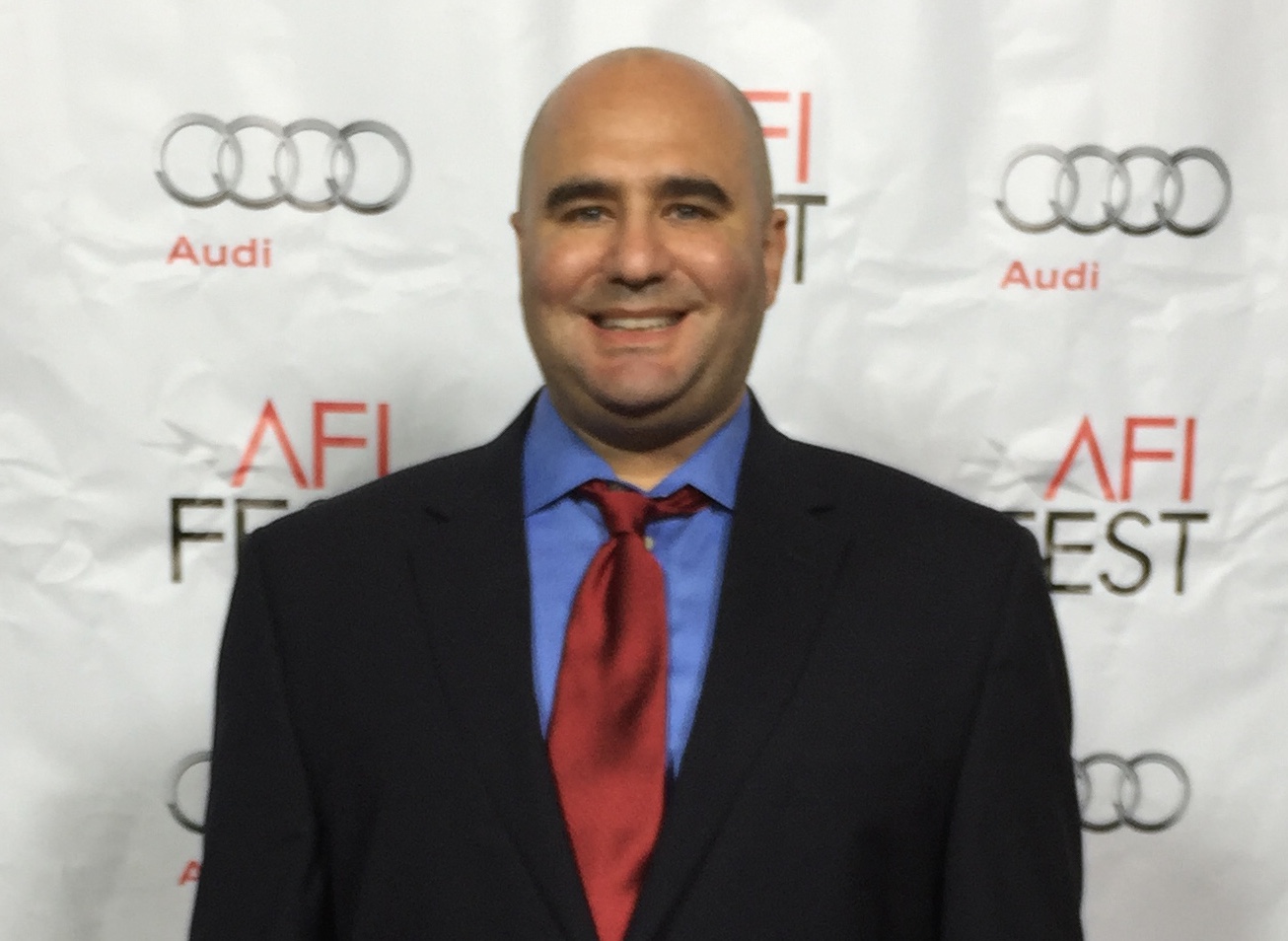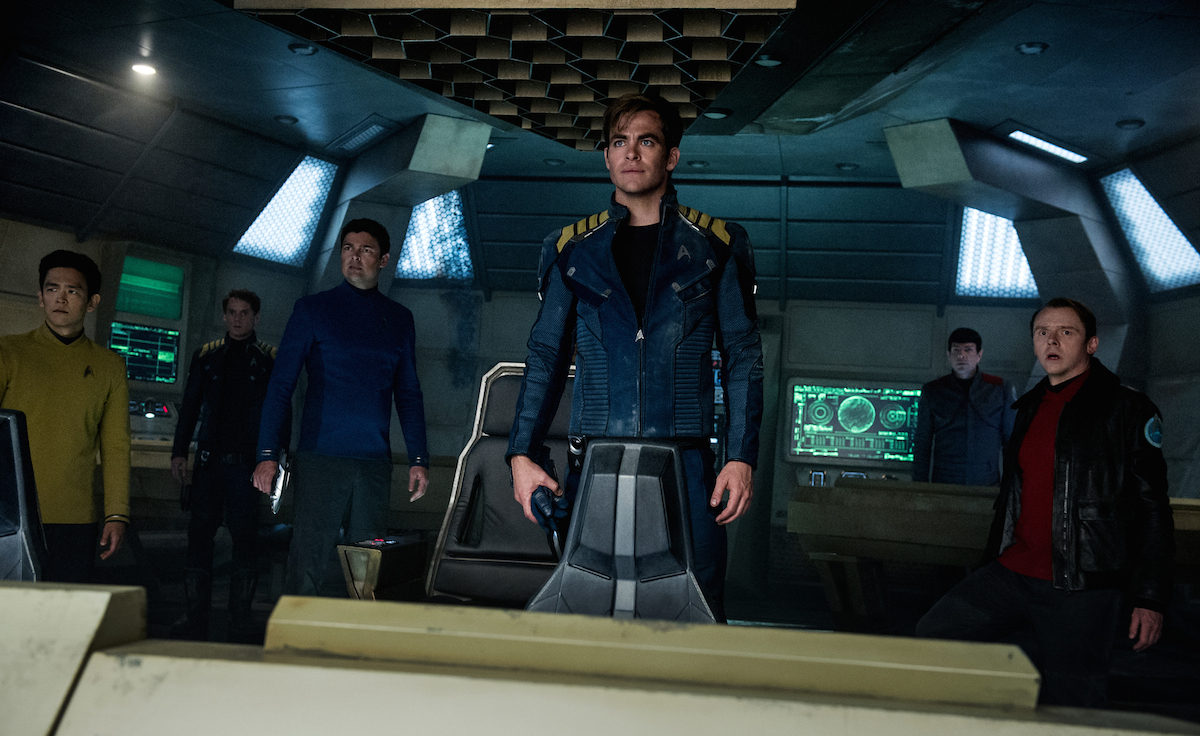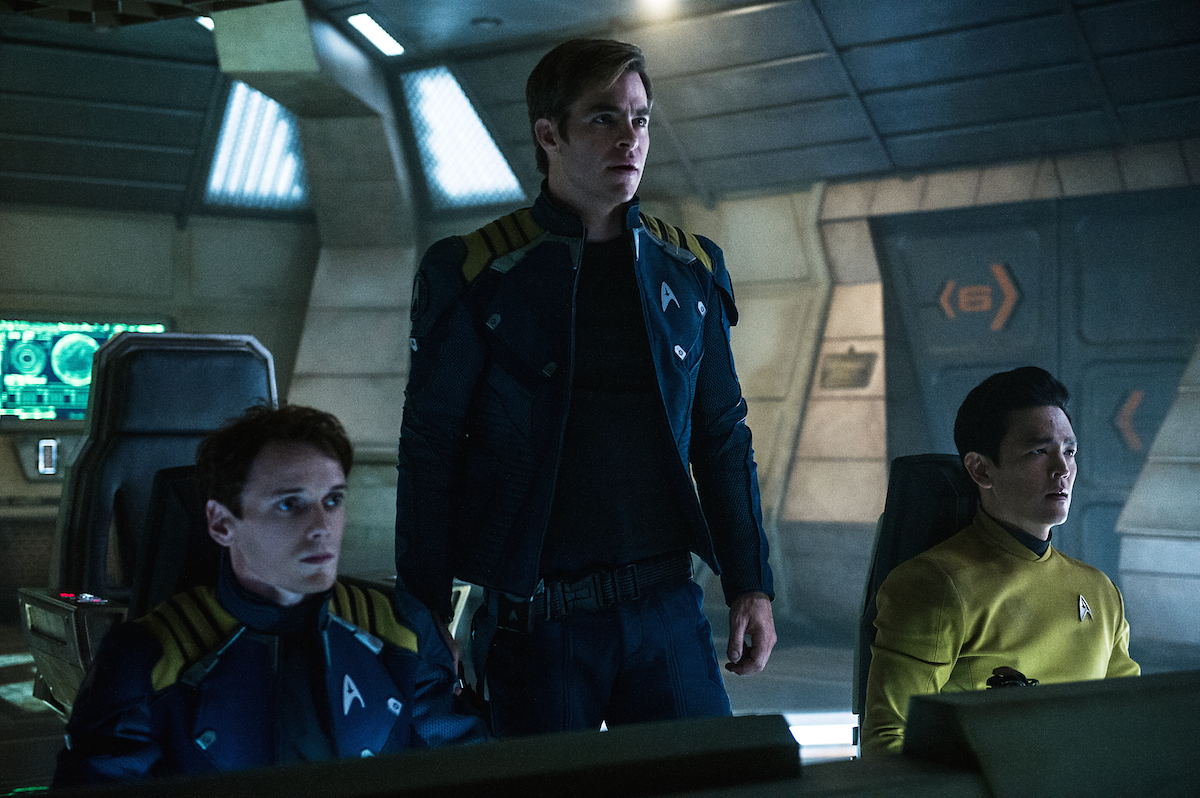John Cho Confesses the 3 Concerns He Had About His Character Coming out in 'Star Trek'

By:
"Star Trek Beyond" opens on Friday, but John Cho has been in the news for weeks regarding a significant development to his character, Sulu.
Sulu, who was played by George Takei in the original TV series and in the first six films, now has a husband — giving "Star Trek" its first openly gay character in its 50-year history.
In one scene, Sulu’s husband (played by co-screenwriter Doug Jung) and their daughter greet Sulu at a spaceport. The scene in the movie is so casual that some viewers might not sense its significance.
Making Sulu’s husband a casual background character was part of the filmmakers’ desire to think ahead to the future of LGBTQ acceptance.
Speaking at a press conference for "Star Trek Beyond," Cho shared his hopes for the film’s place in cultural history.
“I think its nonchalant posture towards it is the best thing about it and the fact that it’s normalized. It’s news now but if you re-watch the movie in 10 years, you won’t think anything of it. It’ll just go right by you. That’s the best thing about it. There’s no music cue. There’s no close-up."
The decision to portray Sulu as gay was made partly as an homage to Takei himself, who is openly gay. But Takei had mixed feelings about Sulu's new sexuality. In a lengthy Facebook post, he questions whether Sulu should be a gay character — as he was not gay in the original series — and if tampering with an existing character is should be more important than staying true to Gene Roddenberry's vision, which he had a big hand in creating. But he later wishes Cho well and congratulates screenwriter Simon Pegg on his "daring and groundbreaking storytelling."
"Star Trek Beyond" reunites Cho with director Justin Lin. Before Lin became a big-time director, helming several "The Fast and the Furious" films, Cho starred in Lin's 2002 Sundance hit "Better Luck Tomorrow."
This year, Cho came to represent another movement when he inspired a meme: #StarringJohnCho. People put Cho's face on movie posters to show what it might look like if more diverse actors, specifically Asian men, portrayed leads that are typically cast for white men.
ATTN:: Has it been a big year for you, having two social movements with #StarringJohnCho and also being the new face of LGBT representation in the "Star Trek" universe?
John Cho: I guess it’s strange. I’ve been talking and thinking a lot about diversity in various forms. But it’s all good. It’s about starting a conversation and I really appreciated the #StarringJohnCho thing in the sense that it was such a beautiful, simple, clever way to get people talking about that issue. It seemed to do it in a way that, traditionally, we couldn’t really get people to seriously think about it. The issue of gay representation, this seemed to be a really simple, beautiful way to start that discussion as well.
ATTN: Have you heard from any gay Trekkies who've been waiting 50 years to be represented in this series?
JC: I mean, to this point I’ve only been speaking to journalists who have seen the movie and I’ve heard from some gay friends of mine who have heard the news. They’ve been excited about the news but haven’t seen the film so I can’t say that I’ve heard from the gay Trekkie public. I hope they like it. I hope they’re pleased by the handling of it. So far so good. We’ll see if that holds. No matter whether they dislike it or like it, I hope that they know that it comes from a good place and that we tried our best to put a gay character in the "Star Trek" universe that people would like and that we tried to treat it in a way that was normalized. The film’s attitude about it, as I say, is very nonchalant. I hope people appreciate that.
 Paramount Pictures
Paramount Pictures
ATTN:: I loved what you said in the press conference, about how 10 years from now, it won’t be news when people watch the movie. It’s news right now because it’s the first, but eventually, it will just be history.
JC: Yeah, and you don’t want to be 10 years from now, watching the movie late at night on HBO, and be like, “Why are they doing a close-up on this couple? Why is there a big music cue?” I think cinematically it’s going to be able to hold up.
ATTN:: Did you expect to get any reaction from George Takei?
JC: I expected it, yeah. I didn’t expect the content of his reaction. We had spoken early on. I called him and wanted to know how he felt. I had three concerns probably when I heard that they were thinking about it. I was concerned about George’s reaction. I wanted him to like it but I was concerned that he would object to us sort of taking his sexuality, that he is a gay actor that played a straight character. Then he comes out of the closet and then we turn that character gay. I thought he might object on that basis. It turns out he objected on a more formal "Star Trek" canon basis, that he didn’t think this was Roddenberry’s intent, which I can appreciate.
I was concerned that Asians might object to [it]. For me, I don’t personally conflate homosexuality with feminizing, but I thought Asian America might perceive this to be another step in what has been this eunuch-making of Asian men in cinema, and that this might be negatively understood. Lastly, I was concerned that because this was the same genetic Sulu that’s in the original series but in an alternate timeline, that we would be accidentally implying that sexual orientation was a choice and not something you were born with. So those were, I thought, the danger areas and those were the areas that I thought we should be wary of when we were discussing Sulu’s sexuality. Pleasantly, I must say ... it’s been positive.
ATTN:: How did you resolve these concerns with the filmmakers?
JC: We talked about it. I just felt like if you feel something strongly, you should go with it first of all. And then I felt like Sulu had nothing to worry about. I just think Sulu’s a stud, personally. I just think that character is a stud and I don’t think we should sweat that. I think in terms of, are we implying that sexuality is a choice? I don’t think people are getting that we’re saying that it’s a choice. I think people are just much more heartened by the message than any other technicality.
 Paramount Pictures
Paramount Pictures
ATTN:: I don’t think the "Star Trek" mission statement has ever been said by the whole cast before. It’s usually said by Kirk or Spock. What was it like to say the "to boldly go" speech with the cast?
JC: It was cool. I didn’t think how monumental it was until I saw it, but I was thinking there was this kind of shift from the ‘60s. Maybe it’s reflective of the shift of our progression as a country. In the ‘60s, the paradigm felt more like a team and Kirk was the captain of the team. Our iteration feels slightly more like the paradigm has become a family a little bit more. It was cool to be inclusive. The story to me thematically seems to be about family. A family can be fractured, can bend, but won’t break.
ATTN:: Did you feel "Better Luck Tomorrow" also was a landmark for diversity? There weren’t, and still aren’t, a lot of English-language movies with Asian casts.
JC: Yes, that’s right. That was an all Asian cast so it was of particular significance that this movie was directed by Justin Lin and also co-written by Doug Jung. The significance of that did not escape us.
ATTN:: What about the "Harold and Kumar" franchise? You had Asian and Indian leads in three movies, which is rare.
JC: Yeah, maybe the most out of all of them, really. Harold and Kumar, you have this double illogic of the casting combined with the genre, that it was a stoner movie with two Asians in the lead. I don’t know if that’ll ever be duplicated.
ATTN:: Have you played a lot of characters that weren’t specifically written as Asian?
JC: My career is probably, if you look at my IMDb page, I’m sure there are more non-Asian names than Asian names on the character side of the page, which I feel mixed about, because it is indicative of the porosity of roles for Asian Americans. By necessity, I’m playing mostly roles that weren’t written for Asians.
ATTN:: Would you like to see more roles written specifically as Asian characters?
JC: In an ideal world, it would just be written in the script: “Asian.” But that happens so seldom that most of the roles I take are not written Asian and they have non-Asian surnames. Even a lot of the characters that I have that have Asian names were changed because they cast me, you know what I mean? So while that indicates to some extent that I personally have broken some barriers in my personal career, on the flip side it does indicate that they’re not writing that many characters that are Asian.
Star Trek Beyond opens on July 22.
